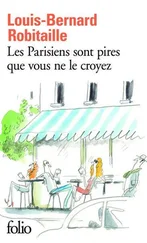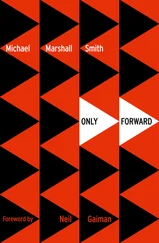The children were like children from anywhere, maybe a little less so. Which is to say they watched very little television and lived in trailers and cabins. In the main, they behaved themselves, but that didn’t mean all of them were suited for much more than seventh or eighth grade. Nurturing a child’s intelligence was still considered a bit indulgent — the sooner they got to work, the better. It was well known that Principal Pemberton didn’t brook troublemakers — he simply expelled them into the meager economy. So it was something of an intrigue when Pemberton called and asked if Pete could come down to the school right away.
SOME OF THE OLDER children said they’d seen the boy on the playground but no one talked to him as he edged his way along the fence to watch the kids on and around the jungle gym. He sat on one of the halved dump truck tires in the wood chips, bonging his enormous boots against the rubber. The kids who noticed the boy didn’t speak to him.
Some thirty minutes later Principal Pemberton found him on the second floor, outside Ms. Kelley’s art class. The nurse was with the child now. Pete and Pemberton regarded them from behind the glass of the door.
“He turned to run, I grabbed his arm, and he bit me.”
Pete looked at Pemberton. He showed Pete his hand.
“Didn’t break the skin.”
Pete looked through the window at the kid. He wore brown camouflage pants that were rolled at the cuffs to fit him and a darker brown sweater that hung on him holey as netting. Leaves and pine needles stuck to the wool and his knit cap. His eyes scanned the room, lighting on Pete behind the glass only long enough to look away and study the nurse or the room.
“I got him wrapped up, but just barely,” Pemberton said. “The kid’s strong for his size.”
He tapped on the glass and the nurse came out.
“He’s got bloody gums,” she said to Pemberton. “I think he has scurvy?”
“No one’s seen him before,” Pemberton told Pete.
“He reeks,” the nurse said.
The boy stood with his hands on his hips. He ran a sleeve under his nose. His movements were swiftly mannish, as though he were another species and full-grown for it, a pygmy or some other reduced people.
“Get a name off of him?”
“No. He wouldn’t tell me.”
“How’s he been?” Pete asked the nurse.
“Sweet as a little bell.”
“And no one has any idea where he’s from? None of the other kids know him…?”
Pemberton shook his head.
The boy sat back on the exam table and unlaced his enormous boots, and after he pulled them from his feet, plucked out the rags balled into each to fill the space after his toes ended. He sniffed the second of these rags like it held some information, shook it out as he had the first one, and laid it to the side of him. He tugged off cheesecloth socks. His bare feet were sickening. A thin flap of soleskin hung from his foot and he pulled it off like a piece of wet sack paper. He smelled this too, held it up to the light, and tossed it onto the floor, where it set like a gray cold cut. The rest of his foot like an etiolated stem, a rotten tuber or root.
“My word,” the nurse said.
The boy looked up at their blanched faces and resumed the crude debridement of his feet.
Pete opened a notepad and wrote down the name of a pediatrician, tore off the paper, and handed it to Pemberton.
“This guy’s retired and a little deaf. Let it ring and he’ll eventually answer. Ask if he can come down.”
Pete opened the door and went in. The nurse was about to follow, but he asked her to let him see the boy alone. The boy glanced up, but kept picking at his feet. Pete took a chair across from him.
“Hi. I’m Pete.”
Pete leaned down and saw the gray sags under the child’s eyes on an otherwise clean pale face. There was a taupe grime of dirt and ash all over his clothes. He smelled like a burnt match and salted fatback. His chopped hair shot out in brown shocks.
“What’s your name?”
“Benjamin.”
“Mind if I ask how old you are?”
“Go on ahead.”
Pete grinned.
“How old are you?”
“Eleven.”
“Really? You don’t look more than eight or nine.”
The boy licked his fingers and seemed to be pressing loose skin in place.
“Where’re you from?”
The kid tossed his head.
“In town somewhere?”
The kid shook his head no.
“Where’s your mama and daddy?”
The kid began to roll down his long socks. Light could be seen through them.
“Your feet hurt?”
“Not bad.”
“You must’ve walked a long way for them to get like that.”
The boy pulled on the socks and then began to stuff the rags back into his boots. A vinegar odor wafted across to Pete.
“Listen, I’m from DFS. I can take you home.”
The kid pulled one of the great black boots onto his foot and began to lace it.
“Sorry. Department of Family Services. That’s what the letters mean. I’d like to see if you and your family need anything. Help with groceries or maybe some medicine or something.”
The kid tugged on the other boot and laced it.
“What do you think?” Pete asked.
The boy stood on his newly booted feet and rocked in place on them.
“I gotta shit,” he said.
The kid walked bowlegged and with his chest forward like he was breasting his way across a river, observing with badly concealed interest the panoply of animals and plants cut from construction paper and taped to the walls. He looked through an ajar door at a classroom taking a quiz and at the lockers and up into the staircase with the mute fascination of an ambassador. In the bathroom, the boy entered the doorless stall and regarded the sculpted porcelain a moment before locating the upright seat and pulling it down. He shat with Pete watching, shameless as a dog. When he washed his hands, he lathered promptly, and then rinsed with wary pleasure, turning his hands in the hot water and looking at Pete in the mirror as if he had to keep an eye on him, and not the other way around.
The child didn’t have hot running water. And he’d never set foot in a public school.
The boy wouldn’t let the doctor examine him, but the doctor said scurvy was certainly possible. Said to check his belly and legs for liver spots, if the boy’d ever let him. He told Pete to get him some vitamin C, asked after the boy’s stool, and when Pete described the quality of it, wrote a prescription for the giardia he’d probably gotten from drinking the mountain water.
There was no trace of the boy’s earlier violence against the principal. If anything, the child radiated studied calm. He spoke in the clipped cadence of a POW, announcing at one point that he’d renounced his citizenship. He stated plainly that he’d kill anyone who stuck him with a needle.
Pete took the boy with him into the pharmacy for the medicine and vitamin C. The kid suffered a few stares for his clothing, the lengths of tattered sweater hanging off of him like witch-hair moss. His ears turned red. Pete took him around the corner to Jessop’s Sporting Goods and by eye sized a winter coat, jeans, and a pullover because the boy wouldn’t try anything on. He bought him socks, a bag of undershirts, and a pair of boots. For good measure, he grabbed a first-aid kit with gauze, bandages, salves, and aspirin, and had the clerk fetch a bottle of iodine tablets.
He half-expected the child to run, but he followed Pete faithfully.
When they got to the Sunrise Cafe, Pete guided the boy into the bathroom and set the sacks of clothes on the counter. He pulled out the bag of T-shirts and opened it and tore the tags off the pants.
“Let’s get you in these new duds, huh?”
The boy swallowed, regarded the clothes like a person might a growling dog. With stillness and fear.
Читать дальше












